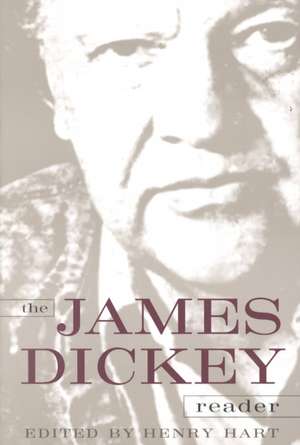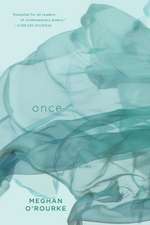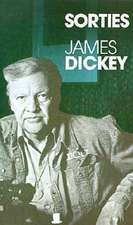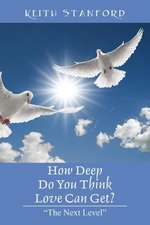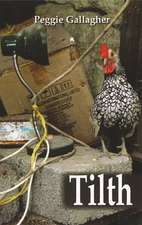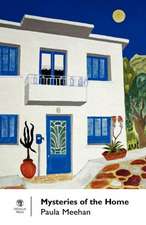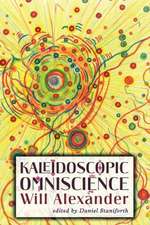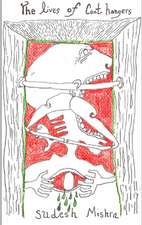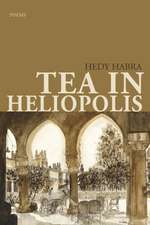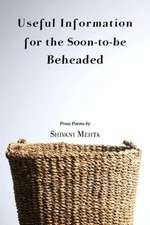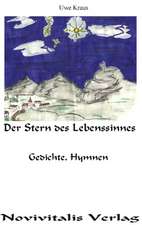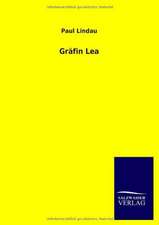The James Dickey Reader
Autor James Dickey Editat de Henry Harten Limba Engleză Paperback – 3 aug 1999
Preț: 145.50 lei
Nou
Puncte Express: 218
Preț estimativ în valută:
27.85€ • 28.96$ • 22.99£
27.85€ • 28.96$ • 22.99£
Carte disponibilă
Livrare economică 24 martie-07 aprilie
Preluare comenzi: 021 569.72.76
Specificații
ISBN-13: 9780684864358
ISBN-10: 0684864355
Pagini: 352
Dimensiuni: 153 x 232 x 22 mm
Greutate: 0.54 kg
Ediția:Original
Editura: Touchstone Books
ISBN-10: 0684864355
Pagini: 352
Dimensiuni: 153 x 232 x 22 mm
Greutate: 0.54 kg
Ediția:Original
Editura: Touchstone Books
Cuprins
ContentsIntroduction
Poetry
Introduction
From Into the Stone
The Vegetable King
The Performance
The Other
Walking on Water
Into the Stone
From Drowning with Others
The Lifeguard
The Heaven of Animals
A Birth
Fog Envelops the Animals
Between Two Prisoners
Hunting Civil War Relics at Nimblewill Creek
The Hospital Window
From Helmets
At Darien Bridge
Chenille
Springer Mountain
Cherrylog Road
The Scarred Girl
From Buckdancer's Choice
The Firebombing
Buckdancer's Choice
Pursuit from Under
Sled Burial, Dream Ceremony
The Fiend
From Falling, May Day Sermon, and Other Poems
Falling
The Sheep Child
Power and Light
Adultery
Encounter in the Cage Country
May Day Sermon to the Women of Gilmer County, Georgia, by a Woman Preacher Leaving the Baptist Church
From The Eye-Beaters, Blood, Victory, Madness, Buckhead and Mercy
The Eye-Beaters
From The Zodiac
The Zodiac (Section I, excerpt; Section XII)
From The Strength of Fields
The Strength of Fields
The Voyage of the Needle
From Puella
Deborah Burning a Doll Made of House-wood
Deborah and Deirdre as Drunk Bridesmaids Foot-racing at Daybreak
From The Eagle's Mile
Daughter
The Olympian
For a Time and Place
Early Poems
The Shark at the Window
Joel Cahill Dead
The Wish to Be Buried Where One Has Made Love
The Wheelchair Drunk
Reading Genesis to a Blind Child
Fiction
From Deliverance
"September 15th" (excerpt)
From Alnilam
Frank Cahill's Journey to Peckover Army Air Corps Base (excerpt)
Peckover Graduation Ceremony (excerpt)
From To the White Sea
The Firebombing of Tokyo (excerpt)
Muldrow's First Murder (excerpt)
From Crux (unpublished novel)
Journey to War
Criticism
From Babel to Byzantium: Poets ℜPoetry Now
Barnstorming for Poetry
Notes on the Decline of Outrage
Robert Frost
Marianne Moore
From Sorties
The Self as Agent
Metaphor as Pure Adventure
Spinning the Crystal Ball
The Greatest American Poet: Roethke
From Night Hurdling
The Water-Bug's Mittens: Ezra Pound: What We Can Use
The G.I. Can of Beets, the Fox in the Wave, and the Hammers over Open Ground
Bare Bones: Afterword to a Film
Chronology
Poetry
Introduction
From Into the Stone
The Vegetable King
The Performance
The Other
Walking on Water
Into the Stone
From Drowning with Others
The Lifeguard
The Heaven of Animals
A Birth
Fog Envelops the Animals
Between Two Prisoners
Hunting Civil War Relics at Nimblewill Creek
The Hospital Window
From Helmets
At Darien Bridge
Chenille
Springer Mountain
Cherrylog Road
The Scarred Girl
From Buckdancer's Choice
The Firebombing
Buckdancer's Choice
Pursuit from Under
Sled Burial, Dream Ceremony
The Fiend
From Falling, May Day Sermon, and Other Poems
Falling
The Sheep Child
Power and Light
Adultery
Encounter in the Cage Country
May Day Sermon to the Women of Gilmer County, Georgia, by a Woman Preacher Leaving the Baptist Church
From The Eye-Beaters, Blood, Victory, Madness, Buckhead and Mercy
The Eye-Beaters
From The Zodiac
The Zodiac (Section I, excerpt; Section XII)
From The Strength of Fields
The Strength of Fields
The Voyage of the Needle
From Puella
Deborah Burning a Doll Made of House-wood
Deborah and Deirdre as Drunk Bridesmaids Foot-racing at Daybreak
From The Eagle's Mile
Daughter
The Olympian
For a Time and Place
Early Poems
The Shark at the Window
Joel Cahill Dead
The Wish to Be Buried Where One Has Made Love
The Wheelchair Drunk
Reading Genesis to a Blind Child
Fiction
From Deliverance
"September 15th" (excerpt)
From Alnilam
Frank Cahill's Journey to Peckover Army Air Corps Base (excerpt)
Peckover Graduation Ceremony (excerpt)
From To the White Sea
The Firebombing of Tokyo (excerpt)
Muldrow's First Murder (excerpt)
From Crux (unpublished novel)
Journey to War
Criticism
From Babel to Byzantium: Poets ℜPoetry Now
Barnstorming for Poetry
Notes on the Decline of Outrage
Robert Frost
Marianne Moore
From Sorties
The Self as Agent
Metaphor as Pure Adventure
Spinning the Crystal Ball
The Greatest American Poet: Roethke
From Night Hurdling
The Water-Bug's Mittens: Ezra Pound: What We Can Use
The G.I. Can of Beets, the Fox in the Wave, and the Hammers over Open Ground
Bare Bones: Afterword to a Film
Chronology
Recenzii
Gordon LishOnly death could exhibit the cheek to think it had the reach to get a grip all the way around James Dickey. Life gave up, reckoning it would never have the arms for it. In any event, James Dickey is not dead, and shall not be, as this book notifies us, sampling by sampling. Indeed, the thing that beats in him -- the heart of none other than the unrepeatable man -- must make the gods puny and afraid.
Pat ConroyWho wrote better than James Dickey in this century? I think he was in a league of his own. His poems are simply better than anyone else's poetry. His criticism cuts to the bone. His novels sizzle when they hit the fire. This book captures the untellable genius of James Dickey. Pick it up and on any page you get perfection and the most breathlessly fully alive writing ever done by an American.
Pat ConroyWho wrote better than James Dickey in this century? I think he was in a league of his own. His poems are simply better than anyone else's poetry. His criticism cuts to the bone. His novels sizzle when they hit the fire. This book captures the untellable genius of James Dickey. Pick it up and on any page you get perfection and the most breathlessly fully alive writing ever done by an American.
Extras
IntroductionMost people know James Dickey as the imposing, slow-talking Southern sheriff in the film version of his bestselling novel Deliverance. For his detractors -- and there were vociferous ones by the time the film appeared in 1972 -- his role confirmed their perception of Dickey as a Southerner who stood up for the savage ways of the hinterland rather than the progressive ideals of the city. Dickey's role as Sheriff Bullard, which he had asked to play while working on the screenplay for Warner Brothers, provides a clue to the drama and the dramatis personae of his life. Born on Groundhog's Day in 1923 to a mother who identified with the Atlanta aristocracy and to a father who identified with its opposite -- the north Georgia outback -- Dickey was torn from the start. In Bullard, Dickey found a compatible as well as comic alter ego to express his sense of family divisions. Bullard, after all, is bipartisan, a mediator between the mountain folk who want bloody revenge and the city folk who simply want to return to the safety of their homes in Atlanta.
Dickey's famous peer and rival, Robert Lowell, once confessed in a poem: "Everything I do / is only (only) a mix of mother and father, / no matter how unlike they were" ("Mother," History, 115). Dickey could have said the same about himself. His mother, Maibelle Swift, was the privileged daughter of Charles Swift, a captain in the Confederate army who amassed a small fortune as the founder of the Atlanta-based Swift Southern Specific company, which made a tonic not unlike the original Coca-Cola. Like Margaret Mitchell, Maibelle Swift went to Washington Seminary, a finishing school for young women in Atlanta's social register, and then to Brenau College, where her main interests were writing, painting, and singing. As a mother of three children she was frail, but she was not the invalid with angina pectoris that her son claimed. Two bouts of rheumatic fever had left her with a leaky valve in her heart. She finally died of cancer at the age of eighty-nine.
Dickey's father, Eugene, hailed from Yankee sympathizers in north Georgia's mountainous Fannin County -- a fact that did not sit well with Maibelle's family. Eugene played football, ran track, and studied law at Georgia Tech and Mercer College, but after marrying the wealthy Maibelle in 1910, he devoted most of his energy to the illegal sport of cockfighting. For the rest of his life he was a lawyer by name, but a cockfighter, gambler, and real-estate investor by desire.
As a boy, Jim Dickey found his father's blood sport repulsive. Sensitive, quiet, and shy, he was more interested in books than gaffed roosters. He constantly demanded that his private nursemaid or his mother read to him. According to his sister: "He was born with a book in his hand" (Interview, February 14, 1997). When he learned to read and write on his own, he started to "make" books. At the age of five he wrote, illustrated, and bound a slim volume about personal hygiene -- toothbrushing -- complete with cutout pictures of Forhan's toothpaste and a calendar to keep track of his brushing. Entitled You and Yourself, the book adumbrated his work as an advertising copywriter in the late 1950s and his autobiographical Self-Interviews composed in the late 1960s. At the age of six he wrote a more ambitious book -- a five-page fantasy about himself as a combat pilot. He called it The Life of James Dickey and filled it with crayon drawings of planes. His introspection and his fantasies -- especially of himself as a war pilot -- were ingrained from the start.
One of the catalysts for Dickey's writing career was the death of his brother, Eugene, on April 4, 1921. Even though it occurred two years before he was born, it convinced Dickey that he was a substitute who had to excel in all endeavors to prove worthy of his parents' love. Imagining that his mother suffered from angina, he decided that she never would have given birth to him if his brother had lived. His life depended on his brother's death. According to his fantasy, Eugene had marie the supreme sacrifice so that he could exist. If he felt guilt about supplanting Eugene, he felt anger about being supplanted by his other brother, Tom, who was born in 1925. Tom effortlessly won his parents' and everyone else's approval with his athleticism and easygoing disposition. As his middle name, Swift, suggested, he was a runner with phenomenal speed. In high school he broke records, in college became the third-highest point scorer in the Southeastern Conference, and in 1948 qualified for the Olympic tryouts, failing to make the team because of leg injuries. To satisfy his parents' conflicting ideals, which spanned business, art, soldiering, athletics, and the outdoors, the fiercely competitive Jim tried to excel in all fields. When he failed, he resorted to self-aggrandizing fantasies to compensate.
Dickey's success as a mature writer lay in his ability to universalize his private fantasies by imposing on them the archetypal shapes of myths. In the 1940s and 1950s, he gravitated toward what Joseph Campbell, borrowing a phrase from James Joyce's Finnegans Wake, called the "monomyth." In The Hero with a Thousand Faces, which Dickey read as a Vanderbilt student, Campbell argued: "The standard path of the mythological adventure of the hero is a magnification of the formula represented in the rites of passage: separation -- initiation -- return" (30). Dickey always attributed the plot of Deliverance, in which four men depart from the safety of their homeground, suffer initiations and trials in the wilderness, and return home with lessons learned, to Campbell's mythic formula. His other two novels traced similar mythic journeys, as did many of his major poems. Even his coffee-table and children's books drew on rites of passage and circular quests.
Dickey's literary career reached its zenith in the 1960s and early 1970s. Having received a Guggenheim Fellowship in 1960, in 1966 he won a National Book Award for Buckdancer's Choice. The poet and editor Peter Davison summed up the critical consensus in his 1967 Atlantic Monthly essay "The Difficulties of Being Major." Using criteria articulated by Auden, he argued that only Robert Lowell and James Dickey could be considered major poets: "If American poetry needs a champion for the new generation, Dickey's power and ambition may supply the need. His archetypal concerns are universal to all languages....His sense of urgency is overwhelming" (October 1967, 121). During this period, younger poets such as Dave Smith and Henry Taylor tried both to emulate and to break free from Dickey's enchanting style. Universities clamored for him to read. He demanded and often got the highest fees of any poet on the reading circuit, and, like Dylan Thomas before him, whether sober or drunk he dazzled his audiences.
In-his life and writings Dickey struggled to embody those attributes he deemed quintessentially American. In North Fulton High School and Clemson A&M College he played football and ran track. He desperately wanted to be a World War II pilot. After he washed out of pilot training at a base in Camden, South Carolina, he could never quite accept his new classification as a radar observer or the number of his missions in the Pacific -- thirty-eight. After returning from the Philippines and Japan and transferring to Vanderbilt, he proved his mettle as a student by graduating with Phi Beta Kappa honors. During his senior year, he married Maxine Webster Syerson, a gracious, attractive woman who worked for American Airlines in Nashville. He spent one more year at Vanderbilt getting his master's degree (he wrote a thesis on Melville's poetry), and then in 1950 got a job teaching English at Rice Institute in Texas. He left to serve as an Air Force radar instructor on bases in Mississippi and Texas during the Korean War, and, after another disappointing stint at Rice, traveled to Europe with Maxine and his three-year-old son Christopher on a Sewanee Review fellowship.
In 1955 his mentor, the Southern writer Andrew Lytle, helped secure him a job at the University of Florida. Several months after his arrival he scandalized a group of elderly Pen Women in Gainesville by reading his poem "The Father's Body," which they deemed obscene. Because of the incident, the university refused to renew his contract. Disgusted by the high-handed rebuke and frustrated by the low-paying drudgery of his job, Dickey quit before the end of the spring term, leaving a stack of blue books on his desk and several classes without a professor. His sister-in-law in Atlanta arranged a meeting with a neighbor in advertising, and before long Dickey was on his way to New York to train as a copywriter at the McCann-Erickson agency. During the late 1950s, Dickey worked in Atlanta on McCann's Coca-Cola account. Maxine believed he was selling his soul to the devil of advertising during the day and trying to buy it back by writing poetry at night. Always supportive of his literary ambitions, she urged him to leave the business and find a job more conducive to his writing career. Instead, he moved to a smaller ad agency -- Liller, Neal, Battle, and Lindsey -- where he hoped to have more time for his-poetry. Later he took another advertising job at Burke, Dowling, Adams. Because Dickey left the agency for a week without getting permission, in July 1961 his boss fired him.
Dickey's fortunes quickly changed. Having received a Guggenheim Fellowship in 1961, in February 1962 he returned to Europe with Maxine, Chris, and his young son Kevin. It was on this trip, while residing in Positano, Italy, that he wrote many of his best-known poems and sketched out the plot of Deliverance. With a "first-read" contract at The New Yorker and two well-received poetry books -- Into the Stone and Drowning with Others -- Dickey was regarded as one of America's most promising poets when he came back to the United States at the end of 1962. Colleges recruited him for poet-in-residence positions, and he obliged by teaching at Reed College (1963-1964), San Fernando Valley state College (1964-1965), and the University of Wisconsin at Madison (1966). His nomadic lifestyle and frenetic "barnstorming for poetry," as he referred to his reading tours, did nothing to slow his prolific output. Helmets, Buckdancer's Choice, and Poems 1957-1967 followed in rapid succession. His stature in the poetry world was acknowledged when he was elected Poetry Consultant at the Library of Congress, a title later changed to Poet Laureate. He served for two terms, from 1966 to 1968, continued to write poetry, revise his manuscript of Deliverance, and mesmerize audiences with his readings.
After leaving Washington, D.C., in 1968, Dickey taught creative writing for a term at Georgia Tech before taking a job at the University of South Carolina. As at his other teaching posts, he impressed most of his students as one of those rare writers whose fame did not eclipse his abilities as a professor. In the classroom, he exuded charisma as well as an encyclopedic knowledge of his subjects. Some of his writing students, most notably Pat Conroy and Charles Frazier, went on to distinguished careers. Inside and outside the university, Dickey's avocations continued to provide ready fodder for journalists. He hunted water moccasins with homemade blowguns, shot at bear with broad-head arrows (or so he said), played bluegrass on his custom-made guitars, learned to calculate latitude and longitude using sextants and chronometers, hit a tennis ball passably well, chased women like a priapic fraternity boy, and outdrank most of his iron-stomached companions. His crowning moment as a public figure came in 1977 when former Georgia governor Jimmy Carter, having been elected president, asked him to read a poem at the Kennedy Center during one of his inauguration ceremonies.
Dickey decided early in his career that he wanted to be known as a Jeffersonian Renaissance man as well as a Rabelaisian hell-raiser. As he drank and womanized, he read extensively in philosophy, anthropology, mythology, art, astronomy, music, fiction, and, of course, poetry. In 1972 his learning and contributions to literature earned him a seat in the National Institute of Arts and Letters; in 1988 he took John Steinbeck's former chair in the American Academy and Institute of Arts and Letters. As Reynolds Price pointed out in his New York Times Book Review eulogy, Dickey was one of those artists who felt compelled to disguise his love of books, so often considered effeminate or impractical in American culture, by acting like a Viking Berserker.
Yet Dickey was as well-read as any major poet and was blessed with an astonishing memory. He once said that of all the twentieth-century writers his memory was closest to Proust's. His ability to recall long passages verbatim from many of the books he had read lent Credibility to his boast. When cirrhosis of the liver and later fibrosis of the lungs confined him to an armchair during his final years, he surrounded himself with a waist-high fortress of books. By the time he died on January 19, 1997, his house contained about 18,000 volumes.
In many ways Dickey was like the daydreamer in James Thurber's story "The Secret Life of Walter Mitty." Dickey spoke of his heroic feats so convincingly that even he seemed to believe them. In an interview for a profile in the Vanderbilt alumni magazine, Dickey spoke of his identification with Mitty and then told the story of his early life, which the journalist rendered as follows:
Dickey never reconciled his mother's otherworldly aestheticism with his father's all-too-savage hedonism. He worshiped at the altars of Byron and Hemingway because he found his own divisions magnified in them. In his writing he projected his contradictory selves onto his personae and analyzed his compulsions to become a hero. As if speaking about his inveterate need to play roles and exaggerate his accomplishments, he wrote in his journal: "One feels so damn sorry for writers, the poor posers. People like Hemingway and Yeats spend their whole lives trying to make good a pose because they despise themselves. They put infinite time and energy into trying to make themselves come true, when they know that it's all a damn lie, anyway" (Sorties, 104). In public Dickey posed as Hemingway's successor; in his poems and novels he subjected his Hemingwayesque hubris to withering scrutiny. Like F. Scott Fitzgerald, Dickey romanticized traditional American heroes while scrupulously tracing the "foul dust" that floated in the wake of their dreams.
Like Fitzgerald's Gatsby, Dickey erected a mansion that will endure in our collective memory, but one made of books rather than expensive stones. His first volumes collected in Poems 1957-1967 (1967) form the foundation, walls, and roof. The following volumes of poetry -- The Eye-Beaters, Blood, Victory, Madness, Buckhead and Mercy (1970), The Zodiac (1976), The Strength of Fields (1979), Puella (1982), and The Eagle's Mile (1990) -- are the inner, rococo chambers. His novels rise like towers, the massive Alnilam (1987) overshadowing Deliverance (1970) and To the White Sea (1993). His other endeavors -- the coffee-table books Jericho: The South Beheld (1974), God's Images (1977), Wayfarer (1988), and Southern Light (1991); the essay collections The Suspect in Poetry (1964), Babel to Byzantium (1968), and Night Hurdling (1983); the children's books Tucky the Hunter (1978) and Bronwen, the Traw, and the Shape-Shifter (1986); the journals Sorties (1971) and Striking In (1996); the screenplays Deliverance (1972) and The Call of the Wild (1976); the dozens of published interviews and self-interviews -- these are the outbuildings lending grandeur to the main facade.
Dickey's writing career can be divided roughly into two halves: pre-Deliverance and post-Deliverance. His bestselling novel represented the culmination of his early use of the "mythical method," as T. S. Eliot called it in a review of Joyce's Ulysses. Most of Dickey's poems published in the 1950s and 1960s have a strong narrative component. While their powerful rhythms derive from "Apocalyptic" poets such as Dylan Thomas and George Barker, their plots derive from the epic tales and fertility rituals that so Eliot, Joyce, and Pound. Unlike the Modernists, however, Dickey did not normally piece together his poems as if they were Cubist collages. He wanted to tell stories with beginnings, middles, and ends that would rivet rather than repel ordinary readers. In order to break new ground, in the 1970s he abandoned what he called his "anecdotal" style to experiment with free-flowing associations, bizarre syntax, and baroque rhetoric.
He had experimented with the design of his poems in the late 1960s, but the "block now his poems looked more improvisatory. In format" of "The Fiend," "Falling," and "May Day Sermon," the lines stretched across the page from margin to margin and the words appeared in clusters surrounded by spaces. He hoped this arrangement would make the reading process more dynamic. The reader would dwell on an image or phrase and then jump to the next after a pause. If he had hoped to lull readers with the anapestic flow of his early poems, now he wanted to jolt them with short linguistic bursts. In the poems he wrote during the last three decades of his life, he experimented further with spacing and design. Usually the poems had neither a left nor a right margin. The phrases were scattered over the page or arranged symmetrically around its center-line. Dickey hoped that his new formats would be even more dynamic and that the reader would take delight in leaping from one line to another down the page.
His most ambitious stylistic experiment during this period was in prose. In the 682-page novel Alnilam, he not only played with ordinary syntax; he also divided many of the pages into columns of light and dark print to indicate a split between the third-person narrative and the"dark" impressions of events by the blind protagonist, Frank Cahill. Many critics, Dickey himself, judged his ambitious novel a magnificent failure, critics were divided over his new stylistic direction in poetry as well. His coffee-table books, which he wrote in the '70s, '80s, and '90s, fared better, at least with the mass market, because of their more traditional plots and styles. Jericho sold more than 150,000 copies. Readers preferred his last novel To the White Sea to Alnilam because it was also more traditional.
The first half of Dickey's career was shaped largely by the predominant reactions to Modernism in post-World War II poetry, the second half by an attempt -- however unsuccessful -- to return to Modernism's original precepts. Dickey began writing poetry seriously in the late 1940s at Vanderbilt University, which had been a center of cultural ferment. The Agrarians, Fugitives, and New Critics had tried to codify the conservative political and poetic views that T. S. Eliot had espoused. At first drawn to their politics and poetics, Dickey soon disavowed them. His closest poetry friends in the late 1950s were the so-called Deep Imagists, Robert Bly and James Wright. Like them, he wrote poems that yoked the archetypal with the everyday, the universal myth with the private dream, the supernatural with the natural. But his epic ambitions, his warrior pose, and his occasional reactionary remarks led to a feud with Bly and an uneasy alliance with Wright in the 1960s.
As for the popular Confessional school led by Lowell, Plath, and Sexton, Dickey constantly berated the way they paraded their abysmal experiences in public. For similar reasons, he lambasted the Beat poets, especially their idol, Allen Ginsberg, arguing that they should keep their sexual preferences, nervous breakdowns, and drug use private. In his own poetry, however, Dickey imitated the Confessionals and Beats. His revelations of adulterous affairs, drunken frenzies, and bouts of despair made his poetry as sensational as theirs. The Black Mountain school presided over by Charles Olson also drew antipathy from Dickey, yet in his later poetry he imitated these followers of Pound and Williams by scattering his phrases over the page. Dickey had less in common with the abstract-expressionist aesthetics of the New York school, whose principal exponent was John Ashbery. Dickey's blendings of fact and fiction, questionings of stable identities, and stylistic experiments after 1970, however, made him seem more a student of the school than a truant rebel. From his peers as well as his precursors, Dickey borrowed what he could use and rejected the rest.
Dickey's tall tales and cavalier antics arose in part from his Southern roots. "Most Southern literature comes right off the front porch," Dickey once commented, "[it arises from] people sitting and talking, long-windedly, but always willing to listen to each other's stories because they've all got good ones to tell" (Voiced Connections, 164). Dickey spun yarns with similar facility. He also bowed to "the integrity of the family unit" and "the sense of kinship" he found especially Southern, adding, "I still believe in the things that Stonewall Jackson and Lee and those people felt were valuable: courage and dependability and other old-fashioned virtues that go all the way back to the Greeks. I still think they're virtues, and the sense of them has been strong in the South. There are a lot of crooked double-dealing people here, but the good human beings in the South have a degree of commitment to honesty and reliability that I have never seen in any other people" (Night Hurdling, 239-40). Despite his obeisance to his region, Dickey never embraced his Southernness unreservedly. If he praised Southern art for its parochialism, he also attacked it for not being sufficiently cosmopolitan. If he pledged allegiance to Southern virtues with one hand, he swept them aside with the other. Like Stephen Dedalus in Joyce's Portrait of the Artist as a Young Man, Dickey tried to fly over family, religion, and social convention but ended up entangling himself -- sometimes hilariously, sometimes tragically -- in their nets.
Dickey's stance toward religion was typical of his paradoxical views. He inherited his father's atheism, but in high school, as if to appease his Episcopalian mother, he read the Bible from cover to coven Later he read the sacred texts of other religions as well. In 1977 he "rewrote the Bible," as he liked to say, in his coffee-table book God's Images. Throughout his career he used symbols, rituals, and myths from different religious traditions to give his experience universal significance. His ambivalent response to religion resembled that of D. H. Lawrence, who, according to Dickey, "was a profoundly religious man who didn't happen to believe in God. But whoever or whatever force it was that created the universe, that caused it to be, whether blind force or determinism or the God of the Old Testament or chance, the rain of matter upon matter, as Democritus thought, is worthy of worship, even if it's indifferent to worship" (NH, 289). Dickey's worshipful view of the natural world and its creator had all the intensity of a mystic. To his way of thinking, it was incumbent upon the writer to act as the creator's midwife and spokesperson, re-creating the world in words that bore witness to its sublime origin.
Dickey belonged to the "tragic generation" of post-World War II poets who suffered from what he himself called "the occupational hazards" of poetry -- alcoholism, mania, and suicidal depression. Dickey was not clinically manic-depressive like Lowell or Roethke, but partly because of his drinking he suffered their violent mood swings and grandiose delusions. His mysticism was often accompanied by pathological enthusiasm, his tenderness by a desire to inflict pain. He was a "dilettante of madness," his son Chris declared in The Summer of Deliverance, a memoir recounting how his father's alcoholic escapades hastened the alcohol-related death of his mother and abetted the drug addictions of his father's second wife. His own conduct notwithstanding, Dickey recoiled from the emotional instability of his peers and precursors. He scoffed at Sylvia Plath, Anne Sexton, John Berryman, Randall Jarrell, Hart Crane, Dylan Thomas, Delmore Schwartz, and Weldon Kees because they were all suicides, or, because of their self-destructive drinking, virtual suicides.
Nevertheless, Dickey understood the problems of his peers all too well. He told a Playboy interviewer in 1973:
Copyright © 1999 by The Estate of James L. Dickey III
Dickey's famous peer and rival, Robert Lowell, once confessed in a poem: "Everything I do / is only (only) a mix of mother and father, / no matter how unlike they were" ("Mother," History, 115). Dickey could have said the same about himself. His mother, Maibelle Swift, was the privileged daughter of Charles Swift, a captain in the Confederate army who amassed a small fortune as the founder of the Atlanta-based Swift Southern Specific company, which made a tonic not unlike the original Coca-Cola. Like Margaret Mitchell, Maibelle Swift went to Washington Seminary, a finishing school for young women in Atlanta's social register, and then to Brenau College, where her main interests were writing, painting, and singing. As a mother of three children she was frail, but she was not the invalid with angina pectoris that her son claimed. Two bouts of rheumatic fever had left her with a leaky valve in her heart. She finally died of cancer at the age of eighty-nine.
Dickey's father, Eugene, hailed from Yankee sympathizers in north Georgia's mountainous Fannin County -- a fact that did not sit well with Maibelle's family. Eugene played football, ran track, and studied law at Georgia Tech and Mercer College, but after marrying the wealthy Maibelle in 1910, he devoted most of his energy to the illegal sport of cockfighting. For the rest of his life he was a lawyer by name, but a cockfighter, gambler, and real-estate investor by desire.
As a boy, Jim Dickey found his father's blood sport repulsive. Sensitive, quiet, and shy, he was more interested in books than gaffed roosters. He constantly demanded that his private nursemaid or his mother read to him. According to his sister: "He was born with a book in his hand" (Interview, February 14, 1997). When he learned to read and write on his own, he started to "make" books. At the age of five he wrote, illustrated, and bound a slim volume about personal hygiene -- toothbrushing -- complete with cutout pictures of Forhan's toothpaste and a calendar to keep track of his brushing. Entitled You and Yourself, the book adumbrated his work as an advertising copywriter in the late 1950s and his autobiographical Self-Interviews composed in the late 1960s. At the age of six he wrote a more ambitious book -- a five-page fantasy about himself as a combat pilot. He called it The Life of James Dickey and filled it with crayon drawings of planes. His introspection and his fantasies -- especially of himself as a war pilot -- were ingrained from the start.
One of the catalysts for Dickey's writing career was the death of his brother, Eugene, on April 4, 1921. Even though it occurred two years before he was born, it convinced Dickey that he was a substitute who had to excel in all endeavors to prove worthy of his parents' love. Imagining that his mother suffered from angina, he decided that she never would have given birth to him if his brother had lived. His life depended on his brother's death. According to his fantasy, Eugene had marie the supreme sacrifice so that he could exist. If he felt guilt about supplanting Eugene, he felt anger about being supplanted by his other brother, Tom, who was born in 1925. Tom effortlessly won his parents' and everyone else's approval with his athleticism and easygoing disposition. As his middle name, Swift, suggested, he was a runner with phenomenal speed. In high school he broke records, in college became the third-highest point scorer in the Southeastern Conference, and in 1948 qualified for the Olympic tryouts, failing to make the team because of leg injuries. To satisfy his parents' conflicting ideals, which spanned business, art, soldiering, athletics, and the outdoors, the fiercely competitive Jim tried to excel in all fields. When he failed, he resorted to self-aggrandizing fantasies to compensate.
Dickey's success as a mature writer lay in his ability to universalize his private fantasies by imposing on them the archetypal shapes of myths. In the 1940s and 1950s, he gravitated toward what Joseph Campbell, borrowing a phrase from James Joyce's Finnegans Wake, called the "monomyth." In The Hero with a Thousand Faces, which Dickey read as a Vanderbilt student, Campbell argued: "The standard path of the mythological adventure of the hero is a magnification of the formula represented in the rites of passage: separation -- initiation -- return" (30). Dickey always attributed the plot of Deliverance, in which four men depart from the safety of their homeground, suffer initiations and trials in the wilderness, and return home with lessons learned, to Campbell's mythic formula. His other two novels traced similar mythic journeys, as did many of his major poems. Even his coffee-table and children's books drew on rites of passage and circular quests.
Dickey's literary career reached its zenith in the 1960s and early 1970s. Having received a Guggenheim Fellowship in 1960, in 1966 he won a National Book Award for Buckdancer's Choice. The poet and editor Peter Davison summed up the critical consensus in his 1967 Atlantic Monthly essay "The Difficulties of Being Major." Using criteria articulated by Auden, he argued that only Robert Lowell and James Dickey could be considered major poets: "If American poetry needs a champion for the new generation, Dickey's power and ambition may supply the need. His archetypal concerns are universal to all languages....His sense of urgency is overwhelming" (October 1967, 121). During this period, younger poets such as Dave Smith and Henry Taylor tried both to emulate and to break free from Dickey's enchanting style. Universities clamored for him to read. He demanded and often got the highest fees of any poet on the reading circuit, and, like Dylan Thomas before him, whether sober or drunk he dazzled his audiences.
In-his life and writings Dickey struggled to embody those attributes he deemed quintessentially American. In North Fulton High School and Clemson A&M College he played football and ran track. He desperately wanted to be a World War II pilot. After he washed out of pilot training at a base in Camden, South Carolina, he could never quite accept his new classification as a radar observer or the number of his missions in the Pacific -- thirty-eight. After returning from the Philippines and Japan and transferring to Vanderbilt, he proved his mettle as a student by graduating with Phi Beta Kappa honors. During his senior year, he married Maxine Webster Syerson, a gracious, attractive woman who worked for American Airlines in Nashville. He spent one more year at Vanderbilt getting his master's degree (he wrote a thesis on Melville's poetry), and then in 1950 got a job teaching English at Rice Institute in Texas. He left to serve as an Air Force radar instructor on bases in Mississippi and Texas during the Korean War, and, after another disappointing stint at Rice, traveled to Europe with Maxine and his three-year-old son Christopher on a Sewanee Review fellowship.
In 1955 his mentor, the Southern writer Andrew Lytle, helped secure him a job at the University of Florida. Several months after his arrival he scandalized a group of elderly Pen Women in Gainesville by reading his poem "The Father's Body," which they deemed obscene. Because of the incident, the university refused to renew his contract. Disgusted by the high-handed rebuke and frustrated by the low-paying drudgery of his job, Dickey quit before the end of the spring term, leaving a stack of blue books on his desk and several classes without a professor. His sister-in-law in Atlanta arranged a meeting with a neighbor in advertising, and before long Dickey was on his way to New York to train as a copywriter at the McCann-Erickson agency. During the late 1950s, Dickey worked in Atlanta on McCann's Coca-Cola account. Maxine believed he was selling his soul to the devil of advertising during the day and trying to buy it back by writing poetry at night. Always supportive of his literary ambitions, she urged him to leave the business and find a job more conducive to his writing career. Instead, he moved to a smaller ad agency -- Liller, Neal, Battle, and Lindsey -- where he hoped to have more time for his-poetry. Later he took another advertising job at Burke, Dowling, Adams. Because Dickey left the agency for a week without getting permission, in July 1961 his boss fired him.
Dickey's fortunes quickly changed. Having received a Guggenheim Fellowship in 1961, in February 1962 he returned to Europe with Maxine, Chris, and his young son Kevin. It was on this trip, while residing in Positano, Italy, that he wrote many of his best-known poems and sketched out the plot of Deliverance. With a "first-read" contract at The New Yorker and two well-received poetry books -- Into the Stone and Drowning with Others -- Dickey was regarded as one of America's most promising poets when he came back to the United States at the end of 1962. Colleges recruited him for poet-in-residence positions, and he obliged by teaching at Reed College (1963-1964), San Fernando Valley state College (1964-1965), and the University of Wisconsin at Madison (1966). His nomadic lifestyle and frenetic "barnstorming for poetry," as he referred to his reading tours, did nothing to slow his prolific output. Helmets, Buckdancer's Choice, and Poems 1957-1967 followed in rapid succession. His stature in the poetry world was acknowledged when he was elected Poetry Consultant at the Library of Congress, a title later changed to Poet Laureate. He served for two terms, from 1966 to 1968, continued to write poetry, revise his manuscript of Deliverance, and mesmerize audiences with his readings.
After leaving Washington, D.C., in 1968, Dickey taught creative writing for a term at Georgia Tech before taking a job at the University of South Carolina. As at his other teaching posts, he impressed most of his students as one of those rare writers whose fame did not eclipse his abilities as a professor. In the classroom, he exuded charisma as well as an encyclopedic knowledge of his subjects. Some of his writing students, most notably Pat Conroy and Charles Frazier, went on to distinguished careers. Inside and outside the university, Dickey's avocations continued to provide ready fodder for journalists. He hunted water moccasins with homemade blowguns, shot at bear with broad-head arrows (or so he said), played bluegrass on his custom-made guitars, learned to calculate latitude and longitude using sextants and chronometers, hit a tennis ball passably well, chased women like a priapic fraternity boy, and outdrank most of his iron-stomached companions. His crowning moment as a public figure came in 1977 when former Georgia governor Jimmy Carter, having been elected president, asked him to read a poem at the Kennedy Center during one of his inauguration ceremonies.
Dickey decided early in his career that he wanted to be known as a Jeffersonian Renaissance man as well as a Rabelaisian hell-raiser. As he drank and womanized, he read extensively in philosophy, anthropology, mythology, art, astronomy, music, fiction, and, of course, poetry. In 1972 his learning and contributions to literature earned him a seat in the National Institute of Arts and Letters; in 1988 he took John Steinbeck's former chair in the American Academy and Institute of Arts and Letters. As Reynolds Price pointed out in his New York Times Book Review eulogy, Dickey was one of those artists who felt compelled to disguise his love of books, so often considered effeminate or impractical in American culture, by acting like a Viking Berserker.
Yet Dickey was as well-read as any major poet and was blessed with an astonishing memory. He once said that of all the twentieth-century writers his memory was closest to Proust's. His ability to recall long passages verbatim from many of the books he had read lent Credibility to his boast. When cirrhosis of the liver and later fibrosis of the lungs confined him to an armchair during his final years, he surrounded himself with a waist-high fortress of books. By the time he died on January 19, 1997, his house contained about 18,000 volumes.
In many ways Dickey was like the daydreamer in James Thurber's story "The Secret Life of Walter Mitty." Dickey spoke of his heroic feats so convincingly that even he seemed to believe them. In an interview for a profile in the Vanderbilt alumni magazine, Dickey spoke of his identification with Mitty and then told the story of his early life, which the journalist rendered as follows:
Born [in] 1924 in a suburb of Atlanta, Dickey grew up with the nickname "Crabapple Cannonball," prowling the dusty roads of north Georgia on a Harley motorcycle, trysting with farm girls in auto graveyards, and bootlegging liquor in a '34 Ford. At Clemson University, he was a prize football back but left after freshman year for the War, flying almost a hundred Pacific combat missions in a Black Widow night fighter. After the War, he transferred to Vanderbilt. When he was barred from football by a Conference rule designed to prevent coaches from stealing each other's returning service athletes, he turned to track and became Tennessee state champion in the 120-yard high hurdles. He graduated magna cum laude in 1949 and got his master's degree the next year (Alumnus, 16).Dickey loved to tell stories about his impoverished childhood during the Depression, his NFL potential as a football player, his dogfights(and daring escapes during the one hundred combat missions he flew over the Philippines and Korea, his first Australian wife who died shortly after World War II, his successful business career as an advertising executive, his composition of "Dueling Banjos" for Deliverance, and so on. In fact, his nickname was not the Crabapple Cannonball; he did not drive around north Georgia on a motorcycle trysting with farm girls; he was never a pilot, he never bootlegged liquor; he was not an outstanding football player at Clemson; he was not prevented from playing football at Vanderbilt because of eligibility rules; and he was not a Tennessee state champion hurdler. In reinventing his life, Dickey glossed over what he considered to be his deficiencies.
Dickey never reconciled his mother's otherworldly aestheticism with his father's all-too-savage hedonism. He worshiped at the altars of Byron and Hemingway because he found his own divisions magnified in them. In his writing he projected his contradictory selves onto his personae and analyzed his compulsions to become a hero. As if speaking about his inveterate need to play roles and exaggerate his accomplishments, he wrote in his journal: "One feels so damn sorry for writers, the poor posers. People like Hemingway and Yeats spend their whole lives trying to make good a pose because they despise themselves. They put infinite time and energy into trying to make themselves come true, when they know that it's all a damn lie, anyway" (Sorties, 104). In public Dickey posed as Hemingway's successor; in his poems and novels he subjected his Hemingwayesque hubris to withering scrutiny. Like F. Scott Fitzgerald, Dickey romanticized traditional American heroes while scrupulously tracing the "foul dust" that floated in the wake of their dreams.
Like Fitzgerald's Gatsby, Dickey erected a mansion that will endure in our collective memory, but one made of books rather than expensive stones. His first volumes collected in Poems 1957-1967 (1967) form the foundation, walls, and roof. The following volumes of poetry -- The Eye-Beaters, Blood, Victory, Madness, Buckhead and Mercy (1970), The Zodiac (1976), The Strength of Fields (1979), Puella (1982), and The Eagle's Mile (1990) -- are the inner, rococo chambers. His novels rise like towers, the massive Alnilam (1987) overshadowing Deliverance (1970) and To the White Sea (1993). His other endeavors -- the coffee-table books Jericho: The South Beheld (1974), God's Images (1977), Wayfarer (1988), and Southern Light (1991); the essay collections The Suspect in Poetry (1964), Babel to Byzantium (1968), and Night Hurdling (1983); the children's books Tucky the Hunter (1978) and Bronwen, the Traw, and the Shape-Shifter (1986); the journals Sorties (1971) and Striking In (1996); the screenplays Deliverance (1972) and The Call of the Wild (1976); the dozens of published interviews and self-interviews -- these are the outbuildings lending grandeur to the main facade.
Dickey's writing career can be divided roughly into two halves: pre-Deliverance and post-Deliverance. His bestselling novel represented the culmination of his early use of the "mythical method," as T. S. Eliot called it in a review of Joyce's Ulysses. Most of Dickey's poems published in the 1950s and 1960s have a strong narrative component. While their powerful rhythms derive from "Apocalyptic" poets such as Dylan Thomas and George Barker, their plots derive from the epic tales and fertility rituals that so Eliot, Joyce, and Pound. Unlike the Modernists, however, Dickey did not normally piece together his poems as if they were Cubist collages. He wanted to tell stories with beginnings, middles, and ends that would rivet rather than repel ordinary readers. In order to break new ground, in the 1970s he abandoned what he called his "anecdotal" style to experiment with free-flowing associations, bizarre syntax, and baroque rhetoric.
He had experimented with the design of his poems in the late 1960s, but the "block now his poems looked more improvisatory. In format" of "The Fiend," "Falling," and "May Day Sermon," the lines stretched across the page from margin to margin and the words appeared in clusters surrounded by spaces. He hoped this arrangement would make the reading process more dynamic. The reader would dwell on an image or phrase and then jump to the next after a pause. If he had hoped to lull readers with the anapestic flow of his early poems, now he wanted to jolt them with short linguistic bursts. In the poems he wrote during the last three decades of his life, he experimented further with spacing and design. Usually the poems had neither a left nor a right margin. The phrases were scattered over the page or arranged symmetrically around its center-line. Dickey hoped that his new formats would be even more dynamic and that the reader would take delight in leaping from one line to another down the page.
His most ambitious stylistic experiment during this period was in prose. In the 682-page novel Alnilam, he not only played with ordinary syntax; he also divided many of the pages into columns of light and dark print to indicate a split between the third-person narrative and the"dark" impressions of events by the blind protagonist, Frank Cahill. Many critics, Dickey himself, judged his ambitious novel a magnificent failure, critics were divided over his new stylistic direction in poetry as well. His coffee-table books, which he wrote in the '70s, '80s, and '90s, fared better, at least with the mass market, because of their more traditional plots and styles. Jericho sold more than 150,000 copies. Readers preferred his last novel To the White Sea to Alnilam because it was also more traditional.
The first half of Dickey's career was shaped largely by the predominant reactions to Modernism in post-World War II poetry, the second half by an attempt -- however unsuccessful -- to return to Modernism's original precepts. Dickey began writing poetry seriously in the late 1940s at Vanderbilt University, which had been a center of cultural ferment. The Agrarians, Fugitives, and New Critics had tried to codify the conservative political and poetic views that T. S. Eliot had espoused. At first drawn to their politics and poetics, Dickey soon disavowed them. His closest poetry friends in the late 1950s were the so-called Deep Imagists, Robert Bly and James Wright. Like them, he wrote poems that yoked the archetypal with the everyday, the universal myth with the private dream, the supernatural with the natural. But his epic ambitions, his warrior pose, and his occasional reactionary remarks led to a feud with Bly and an uneasy alliance with Wright in the 1960s.
As for the popular Confessional school led by Lowell, Plath, and Sexton, Dickey constantly berated the way they paraded their abysmal experiences in public. For similar reasons, he lambasted the Beat poets, especially their idol, Allen Ginsberg, arguing that they should keep their sexual preferences, nervous breakdowns, and drug use private. In his own poetry, however, Dickey imitated the Confessionals and Beats. His revelations of adulterous affairs, drunken frenzies, and bouts of despair made his poetry as sensational as theirs. The Black Mountain school presided over by Charles Olson also drew antipathy from Dickey, yet in his later poetry he imitated these followers of Pound and Williams by scattering his phrases over the page. Dickey had less in common with the abstract-expressionist aesthetics of the New York school, whose principal exponent was John Ashbery. Dickey's blendings of fact and fiction, questionings of stable identities, and stylistic experiments after 1970, however, made him seem more a student of the school than a truant rebel. From his peers as well as his precursors, Dickey borrowed what he could use and rejected the rest.
Dickey's tall tales and cavalier antics arose in part from his Southern roots. "Most Southern literature comes right off the front porch," Dickey once commented, "[it arises from] people sitting and talking, long-windedly, but always willing to listen to each other's stories because they've all got good ones to tell" (Voiced Connections, 164). Dickey spun yarns with similar facility. He also bowed to "the integrity of the family unit" and "the sense of kinship" he found especially Southern, adding, "I still believe in the things that Stonewall Jackson and Lee and those people felt were valuable: courage and dependability and other old-fashioned virtues that go all the way back to the Greeks. I still think they're virtues, and the sense of them has been strong in the South. There are a lot of crooked double-dealing people here, but the good human beings in the South have a degree of commitment to honesty and reliability that I have never seen in any other people" (Night Hurdling, 239-40). Despite his obeisance to his region, Dickey never embraced his Southernness unreservedly. If he praised Southern art for its parochialism, he also attacked it for not being sufficiently cosmopolitan. If he pledged allegiance to Southern virtues with one hand, he swept them aside with the other. Like Stephen Dedalus in Joyce's Portrait of the Artist as a Young Man, Dickey tried to fly over family, religion, and social convention but ended up entangling himself -- sometimes hilariously, sometimes tragically -- in their nets.
Dickey's stance toward religion was typical of his paradoxical views. He inherited his father's atheism, but in high school, as if to appease his Episcopalian mother, he read the Bible from cover to coven Later he read the sacred texts of other religions as well. In 1977 he "rewrote the Bible," as he liked to say, in his coffee-table book God's Images. Throughout his career he used symbols, rituals, and myths from different religious traditions to give his experience universal significance. His ambivalent response to religion resembled that of D. H. Lawrence, who, according to Dickey, "was a profoundly religious man who didn't happen to believe in God. But whoever or whatever force it was that created the universe, that caused it to be, whether blind force or determinism or the God of the Old Testament or chance, the rain of matter upon matter, as Democritus thought, is worthy of worship, even if it's indifferent to worship" (NH, 289). Dickey's worshipful view of the natural world and its creator had all the intensity of a mystic. To his way of thinking, it was incumbent upon the writer to act as the creator's midwife and spokesperson, re-creating the world in words that bore witness to its sublime origin.
Dickey belonged to the "tragic generation" of post-World War II poets who suffered from what he himself called "the occupational hazards" of poetry -- alcoholism, mania, and suicidal depression. Dickey was not clinically manic-depressive like Lowell or Roethke, but partly because of his drinking he suffered their violent mood swings and grandiose delusions. His mysticism was often accompanied by pathological enthusiasm, his tenderness by a desire to inflict pain. He was a "dilettante of madness," his son Chris declared in The Summer of Deliverance, a memoir recounting how his father's alcoholic escapades hastened the alcohol-related death of his mother and abetted the drug addictions of his father's second wife. His own conduct notwithstanding, Dickey recoiled from the emotional instability of his peers and precursors. He scoffed at Sylvia Plath, Anne Sexton, John Berryman, Randall Jarrell, Hart Crane, Dylan Thomas, Delmore Schwartz, and Weldon Kees because they were all suicides, or, because of their self-destructive drinking, virtual suicides.
Nevertheless, Dickey understood the problems of his peers all too well. He told a Playboy interviewer in 1973:
I think there is a terrible danger in the over-cultivation of one's sensibilities, and that's what poets are forced to do in order to be poets. You will find that poets, almost without exception, are cast into the most abject despair over things that wouldn't bother an ordinary person at all. Living with such an exacerbating mind and sensibility gets to be something that one cannot bear any longer. In order to create poetry, you make a monster out of your own mind. You can't get rid of him. He stays right with you every minute. Every minute of every day and every night. He produces terrible things -- nightmare after nightmare. I'm subject to having them no less than any of the rest of them. But I don't fool myself. I know what's doing it. Writers start out taking something to aid the monster, to give them the poetry. Poets use alcohol, or any other kind of stimulant, to aid and abet this process, then eventually take refuge in the alcohol to help get rid of it. But by that time the monster is so highly developed he cannot be got rid of. (VC, 119).The interviewer asked Dickey whether the poetry was worth the pain. Dickey said yes, because "the moments of intensity which do lead to delight and joy and fulfillment are so much better than those that other people have" (VC, 120). In his poetry and fiction, Dickey punctuated his tragedies with moments of comedy and joy. His talent and learning made him one of the most significant poets and men of letters in the post-World War II era.
Copyright © 1999 by The Estate of James L. Dickey III
Textul de pe ultima copertă
This collection of James Dickey's poems and prose includes choice selections of the author's poetry, fiction, and essays, as well as some early unpublished poetry and excerpts from his unfinished novel Crux. Organized chronologically by genre, this is the definitive collection of works by one of the twentieth century's most important talents.
Descriere
Published to coincide with his son Christopher Dickey's memoir, "Summer of Deliverance, " this collection of poems and prose distill's James Dickey's tremendous talent and influence, and sheds light on his remarkable career.
Notă biografică
James Dickey published fifteen books of poetry, four collections of essays, four coffee-table books, three novels, and one screenplay. His book of poetry Buckdancer's Choice received the National Book Award, the Poetry Society of America's Melville Cane Award, and an award from the National Institute of Arts and Letters. His bestselling first novel, Deliverance, was made into a movie. He was a member of the National Institute of Arts and Letters and the American Academy and Institute of Arts and Letters, and was Poet-in-Residence and First Carolina Professor of English at the University of South Carolina from 1969 until his death in 1997.
